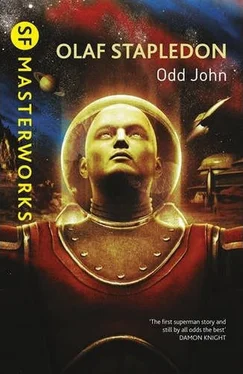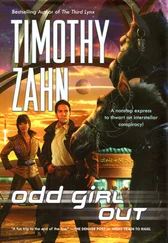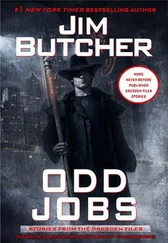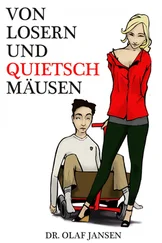Olaf Stapledon - Odd John
Здесь есть возможность читать онлайн «Olaf Stapledon - Odd John» весь текст электронной книги совершенно бесплатно (целиком полную версию без сокращений). В некоторых случаях можно слушать аудио, скачать через торрент в формате fb2 и присутствует краткое содержание. Город: London, Год выпуска: 2012, ISBN: 2012, Издательство: Hachette UK, Жанр: Фантастика и фэнтези, на английском языке. Описание произведения, (предисловие) а так же отзывы посетителей доступны на портале библиотеки ЛибКат.
- Название:Odd John
- Автор:
- Издательство:Hachette UK
- Жанр:
- Год:2012
- Город:London
- ISBN:9780450038570
- Рейтинг книги:5 / 5. Голосов: 1
-
Избранное:Добавить в избранное
- Отзывы:
-
Ваша оценка:
- 100
- 1
- 2
- 3
- 4
- 5
Odd John: краткое содержание, описание и аннотация
Предлагаем к чтению аннотацию, описание, краткое содержание или предисловие (зависит от того, что написал сам автор книги «Odd John»). Если вы не нашли необходимую информацию о книге — напишите в комментариях, мы постараемся отыскать её.
Odd John — читать онлайн бесплатно полную книгу (весь текст) целиком
Ниже представлен текст книги, разбитый по страницам. Система сохранения места последней прочитанной страницы, позволяет с удобством читать онлайн бесплатно книгу «Odd John», без необходимости каждый раз заново искать на чём Вы остановились. Поставьте закладку, и сможете в любой момент перейти на страницу, на которой закончили чтение.
Интервал:
Закладка:
“Well, Smithson had to die. He was standing at the foot of the pipe. I pretended to slip, and fell on him, overbalancing him by kicking off from the wall. We both went down with a crash. With my left hand I seized the torch, and with my right I whipped out my little scout’s knife. The position of the human heart was not unknown to me. I plunged the knife home, leaning on it with all my weight. Smithson flung me off with one frantic spasm, then lay still.
“The scrimmage had made a considerable noise, and I heard a bed creak in the house. For a moment I looked at Smithson’s open eyes and open mouth. I pulled out the knife, and then there was a spurt of blood.”
John’s account of this strange incident showed me how little I had known of his real character at that time.
“You must have felt pretty bad on the way home,” I said.
“As a matter of fact,” he answered, “I didn’t. The bad feeling ended when I made my decision. And I didn’t go straight home. I went to Smithson’s house, intending to kill his wife. I knew she was down with cancer and in for a lot of pain, and would be broken-hearted over her husband’s death; so I decided to take one more risk and put her out of her misery. But when I got there, by secret ways of my own, I found the house lit up and awake. She was evidently having a bad night. So I had to leave her, poor wretch. Even that didn’t really upset me. You may say I was saved by the insensitivity of childhood. Perhaps to some extent; though I had a pretty vivid notion of what Pax would suffer if she lost her husband. What really saved me was a kind of fatalism. What must be, must be. I felt no remorse for my own past folly. The ‘I’ that had committed that folly was incapable of realizing how foolish it was being. The new ‘I,’ that had suddenly awakened, realized very clearly, and was anxious to make amends so far as possible; but of remorse or shame it felt nothing.”
To this confession I could make only one reply, “Odd John!”
I then asked John if he was preyed on by the dread of being caught. “No,” he said. “I had done all I could. If they caught me, they caught me. But I had done the job as efficiently as it is ever done. I had worn rubber gloves, and left a few false fingerprints, made by an ingenious little instrument of my own. My only serious anxiety was over my purser. I sold him the swag in small instalments over a period of several months.”
CHAPTER VI
MANY INVENTIONS
ALTHOUGH I did not at the time know that John was responsible for the murder, I noticed that a change came over him. He became less communicative, in a way more aloof from his friends, both juvenile and adult, and at the same time more considerate and even gentle. I say “in a way” more aloof, because, though less ready to talk about himself, and more prone to solitariness, he had also his sociable times. He could indeed be a most sympathetic companion, the sort in whom one was tempted to confide all manner of secret hopes and fears that were scarcely admitted by oneself. One day, for instance, I found myself discovering, under the influence of John’s presence and my own effort to explain myself, that I had already become very strongly attracted to a certain Pax-like young woman, and further that I had been kept from recognizing this feeling through an obscure sense of loyalty to John. The discovery of the strength of my feeling for John was more of a shock than the discovery of my feeling for the girl. I knew that I was deeply interested in John, but till that day I had no idea how subtle and far-reaching were the tentacles with which the strange child had penetrated me.
My reaction was a violent and rather panicky rebellion. I flaunted before John the new-found normal sexual attraction which he himself had pointed out to me, and I ridiculed the notion that I was psychologically his captive. He replied, “Well, be careful. Don’t spoil your life for me.” It was strange to be talking like this to a child of less than ten years old. It was distressing to feel that he knew more about me than I knew about myself. For in spite of my denial, I knew that he was right.
Looking back, I recognize that John’s interest in my case was partly due to curiosity about a relationship which he himself could not yet experience, partly to straightforward affection for a well-known companion, partly to the need to understand as fully as possible one whom he intended to use for his own ends. For it is clear that he did intend to use me, that he did not for a moment intend me to free myself. He wanted my affair with the Pax-like girl to go forward and complete itself not only because, as my friend, he espoused my need, but also because, if I were to give it up for his sake, I should become a vindictive rather than a willing slave. He preferred, I imagine, to be served by a free and roving hound rather than by a chained and hungry wolf.
His feeling for individuals of the species which, as a species, he heart ily despised, was a strange blend of contempt and respect, detachment and affection. He despised us for our stupidity and fecklessness; he respected us for our occasional efforts to surmount our natural disabilities. Though he used us for his own ends with calm aloofness, he could also, when fate or our own folly brought us into trouble, serve us with surprising humility and devotion.
His growing capacity for personal relationships with members of the inferior species was shown most quaintly in his extraordinary friendship with a little girl of six. Judy’s home was close to John’s, and she had come to regard John as her private property. He played uproarious games with her, helped her to climb trees, and taught her to swim and roller-skate. He told her wildly imaginative stories. He patiently explained to her the sorry jokes of Comic Cuts . He drew pictures of battle and murder, shipwreck and volcanic eruption for Judy’s sole delight. He mended her toys. He chaffed her for her stupidity or praised her for her intelligence as occasion demanded. If any one was less than kind to her, John rushed to her defence. In all communal games it was taken for granted that John and Judy must be on the same side. In return for this devotion she mauled him, laughed at him, scolded him, called him “stoopid Don,” showed no respect at all for his marvellous powers, and presented him with all the most cherished results of her enterprise in the “hand-work” class at school.
I once challenged John, “Why are you so fond of Judy?” He answered promptly, imitating her unusually backward baby speech, “Doody made for be’n’ fon’ of. Can’t not be fon’ of Doody.” Then after a pause he said, “I’m fond of Judy as I’m fond of sea-birds. She does only simple things, but she does them all with style. She be’s Judy as thoroughly and perfectly as a gannet be’s a gannet. If she could grow up to do the grown—up things as well as she does the baby things, she’d be glorious. But she won’t. When it comes to doing the more difficult things, I suppose she’ll mess up her style like—like the rest of you. It’s a pity. But meanwhile she’s—Judy.”
“What about yourself?” I said. “Do you expect to grow up without losing your style?”
“I’ve not found my style yet,” he answered. “I’m groping. I’ve messed things pretty badly already. But when I do find it—well, we shall see. Of course,” he added surprisingly, “God may find grown-ups as delightful to watch as I find Judy; because, I suppose, he doesn’t want them to have a finer style than they actually have. Sometimes I can feel that way about them myself. I can feel their bad style is part of what they are, and strangely fascinating to watch. But I have an idea God expects something different from me. Or, leaving out the God myth, I expect something different from me.”
Читать дальшеИнтервал:
Закладка:
Похожие книги на «Odd John»
Представляем Вашему вниманию похожие книги на «Odd John» списком для выбора. Мы отобрали схожую по названию и смыслу литературу в надежде предоставить читателям больше вариантов отыскать новые, интересные, ещё непрочитанные произведения.
Обсуждение, отзывы о книге «Odd John» и просто собственные мнения читателей. Оставьте ваши комментарии, напишите, что Вы думаете о произведении, его смысле или главных героях. Укажите что конкретно понравилось, а что нет, и почему Вы так считаете.












